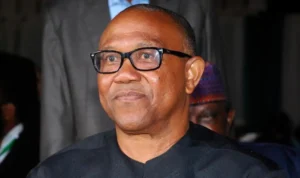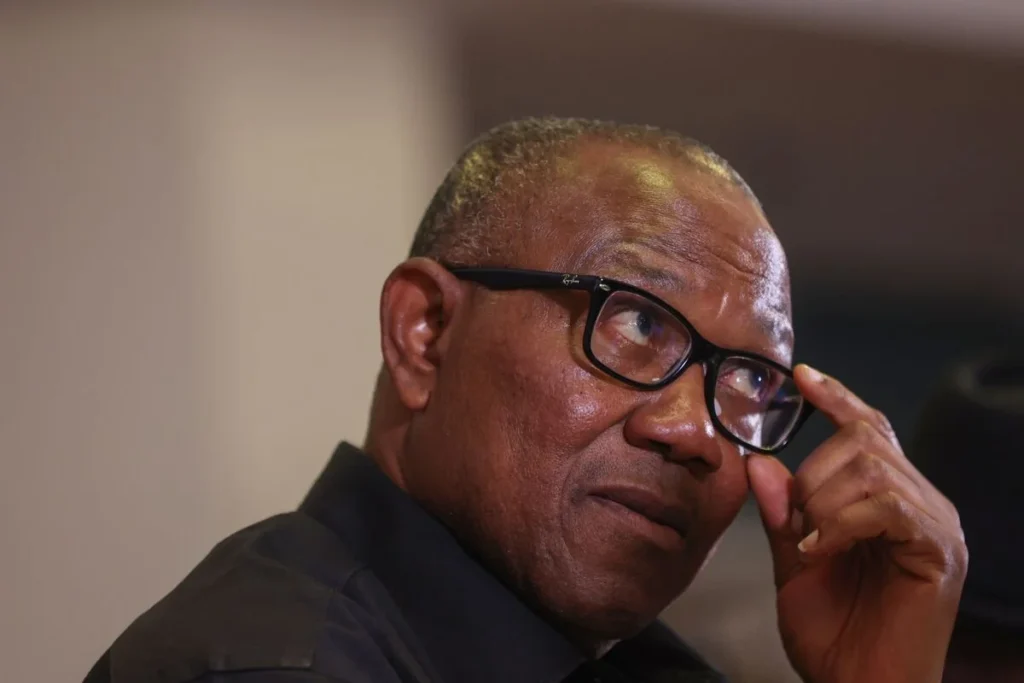Former presidential candidate and Labour Party leader, Peter Obi, has strongly criticized the alarming number of out-of-school children in Nigeria, describing the reported 20 million figure as a national disgrace and an indictment of the country’s leadership. He stressed that the situation demands urgent and targeted investment in the education sector to avert long-term socioeconomic damage.
Obi made these remarks during a public engagement in Lagos, where he emphasized that no nation can develop beyond the quality of its education. He called on the Federal Government and relevant stakeholders to prioritize education funding and policy reforms to ensure every Nigerian child has access to quality learning opportunities.

“20 Million Children Out of School Is a National Emergency”
Speaking candidly, Obi labeled the out-of-school figure as “not just a statistic, but a reflection of our collective failure to secure the future.” According to him, allowing such a large number of children to remain outside the formal school system threatens national security, widens the poverty gap, and hinders economic growth.
Citing data from global development agencies, Obi warned that Nigeria ranks among the worst countries in terms of child education access and learning outcomes, particularly in the northern regions, where the crisis is most severe.
“It is unacceptable that in the 21st century, with all our resources and human capital, we cannot guarantee basic education for our children,” he said. “These children are not just missing school; they are missing their future.”
Obi Urges Strategic Investment and Budgetary Reforms
Peter Obi called on government at all levels to rethink budgetary priorities, emphasizing that real progress cannot be achieved without significant investment in human capital.
He argued that funding education should not be treated as an expenditure but as a critical national investment. He proposed:
-
Raising education spending to at least 15–20% of the annual national budget
-
Channeling funds to early childhood care, basic education, and teacher training
-
Creating education trust funds at the local government level
-
Partnering with private and international organizations to support public schools
“Every naira spent on education yields massive returns in productivity, innovation, and peace. We are not doing our children—or ourselves—any favors by ignoring this,” Obi insisted.
Linking Education to National Development
The former Anambra State governor highlighted how education is directly linked to job creation, security, and national cohesion. He recalled that his administration in Anambra achieved top results in WAEC and NECO during his tenure due to targeted investment in schools, teacher welfare, and infrastructure.
Obi urged leaders across the federation to replicate proven models of success, particularly in underserved communities where school attendance is low and dropout rates are high.
He also advocated for community-based education solutions, where local leaders, religious institutions, and civil society groups can collaborate to keep children in school and provide incentives for parents.
A Wake-Up Call for Policymakers
Obi’s call comes amid renewed conversations around Nigeria’s learning crisis. Recent reports from UNICEF and the World Bank indicate that over 70% of 10-year-olds in Nigeria cannot read or solve basic math problems, pointing to a deep learning poverty crisis.
As the Federal Government continues its push to return 15 million children to classrooms by 2027, Peter Obi’s intervention reinforces the urgency of translating policy into practical, measurable results.
“We Cannot Afford to Fail Our Children Again”
Obi concluded his remarks with a sobering reminder: “These children are the future engineers, doctors, teachers, and leaders of this country. If we abandon them today, we forfeit our tomorrow.”
He urged citizens to hold leaders accountable and advocate for educational reforms, stressing that no political or economic plan can succeed without educated minds to drive it.
As Nigeria grapples with multiple development challenges, Obi’s firm stance underscores a growing consensus: the education of the Nigerian child must move from political rhetoric to national emergency response.







